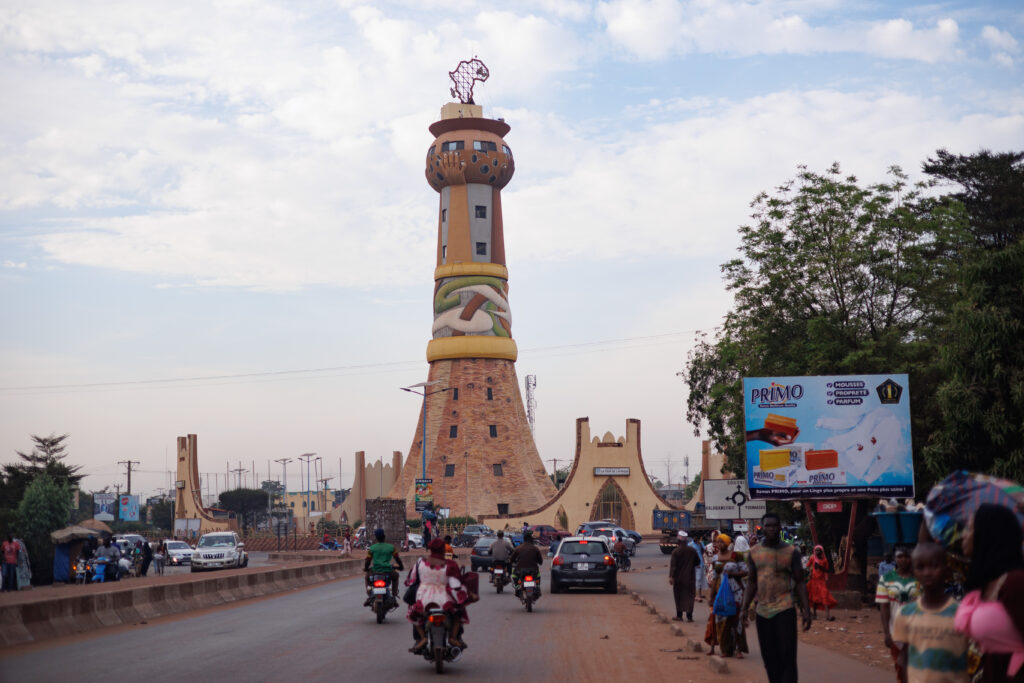Since September, jihadists affiliated with Al-Qaeda have imposed a fuel blockade on Mali and a total blockade on several towns, wreaking havoc on the west African nation.Here’s what we know about the situation, which is pushing the ruling junta to its limits in the landlocked Sahelian nation that is heavily dependent on imports.- Roads controlled by JNIM -Jihadists from JNIM, the Arabic acronym for the Group to Support Islam and Muslims, are targeting fuel convoys on the main roads from Senegal and Ivory Coast, where most of Mali’s imported goods originate.In a video released at the end of October, the jihadists announced that “all roads around Bamako” were considered “war zones”.They additionally imposed new rules on travellers, requiring separation of men and women, particularly on public transportation, and requiring women to wear veils.The situation appears to have improved slightly in recent days. Several fuel convoys under military escort have made it to the capital and some other cities, easing pressure on the government and population.Meanwhile suspensions announced by Geneva-based shipping giant MSC and French shipper CMA-CGM involving Mali operations were reversed following agreements with the government.- Situation in Bamako -In the capital, long lines at gas stations persist.But schools and universities reopened Monday after a two-week closure ordered by the authorities due to the fuel shortage.However, public transportation has not yet been fully restored and access to electricity has deteriorated considerably.According to a security source consulted by AFP, “approximately 110 out of more than 700 gas stations are operating sporadically in the capital.”Today, “vast areas are beyond the effective control of the state,” Bakary Sambe from the Dakar-based Timbuktu Institute think tank told AFP Tuesday.The government “is concentrating its forces around Bamako to secure the regime”, he said.- Rest of country -The situation remains more difficult in the rest of the country, where several towns in the south and centre are under a total jihadist blockade and fuel convoys are slow to arrive.According to Studio Tamani, a radio station funded by a Swiss foundation, the central cities of Mopti and Bandiagara have been without electricity for a month.In the city of Dioila, 160 kilometres (100 miles) east of Bamako, gas stations still do not have fuel, according to state-owned daily newspaper L’Essor.Fuel tankers have just arrived in the central city of Segou and southeast city of Sikasso for the first time in several weeks. But Mopti has not had any fuel since the beginning of September.”There is a lot of solidarity among people”, a resident of Segou told AFP, adding that he hopes “the situation will improve with the arrival of more tankers”.He noted, however, that “the electricity supply has deteriorated since the blockade began. We have a maximum of eight hours of power per day”.The north of the country is not affected by the blockades, and the area is supplied by convoys coming from Niger.- International reactions -Faced with the deteriorating situation, the United States and the United Kingdom announced two weeks ago the withdrawal of their non-essential personnel from Mali, and several embassies have asked their citizens to leave the country.African Union Commission President Mahmoud Ali Youssouf expressed “deep concern” on Sunday over the blockade, calling for “urgent international action”.At Bamako’s Modibo Keita International Airport on Sunday, departing foreigners were “increasingly numerous”, according to an employee for an African airline.However, an AFP journalist at the scene said there was no mass exodus or panic.”We are seeing the departure of a lot of Chinese people, who were numerous in smaller towns,” an international airline employee told AFP.”The number of expatriates in Mali, especially Westerners, can be counted on one hand. There are no mass departures because there aren’t many left,” the employee said.According to the spokesperson for the French Ministry of Foreign Affairs, for example, some 4,300 French citizens were registered on the consular list.- Bamako downfall unlikely -The idea that JNIM could take Bamako seems unlikely at this stage, according to observers, as it lacks military and governance capabilities.The jihadists’ objective is indeed “the fall of the junta” and the “establishment of a caliphate”, Nicolas Lerner, France’s foreign intelligence chief said Monday in an interview on France Inter radio.
